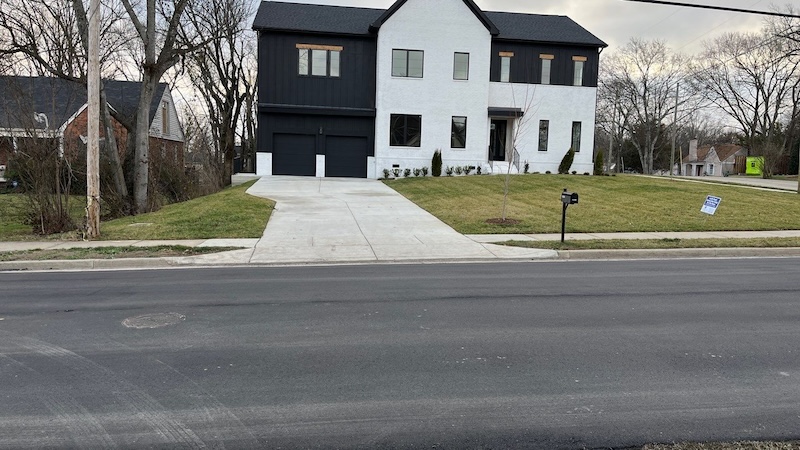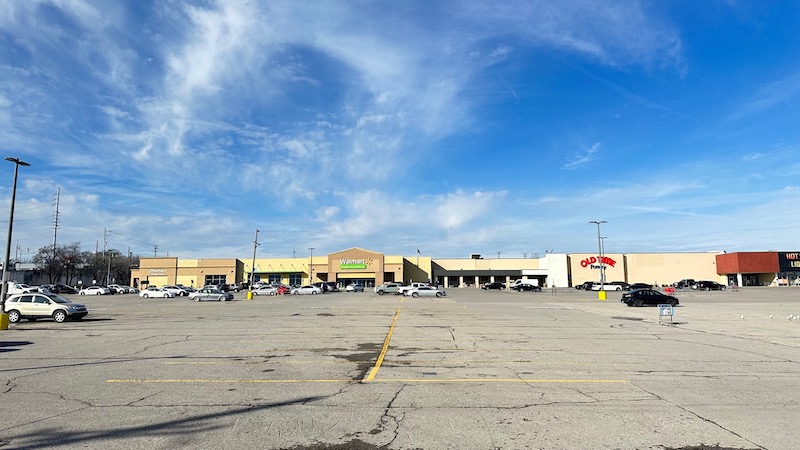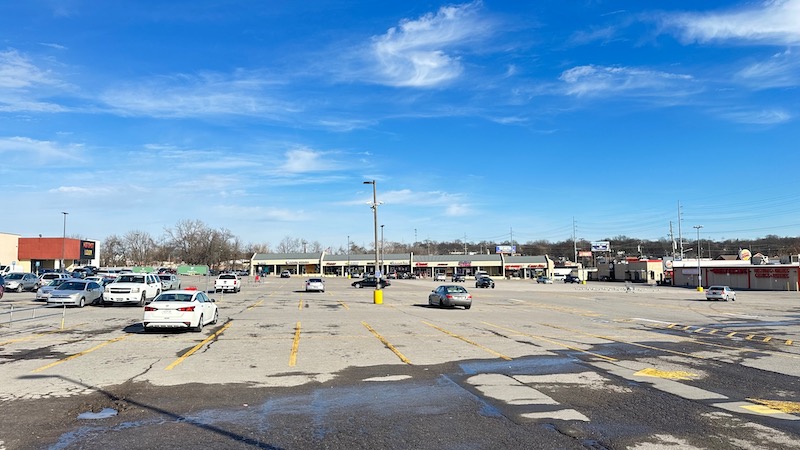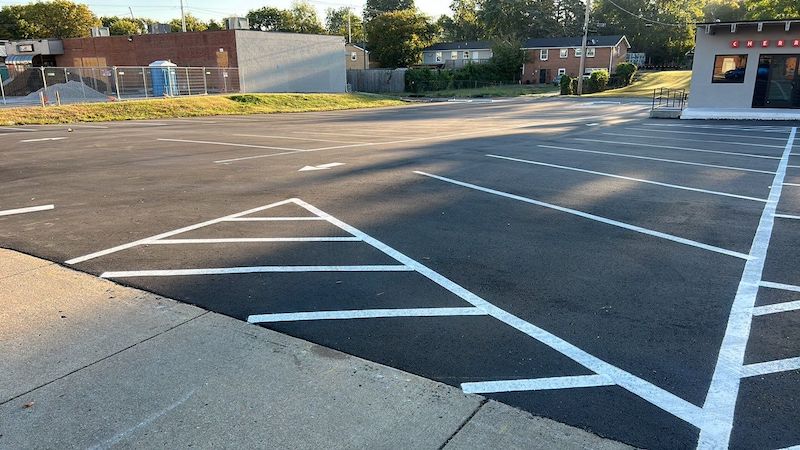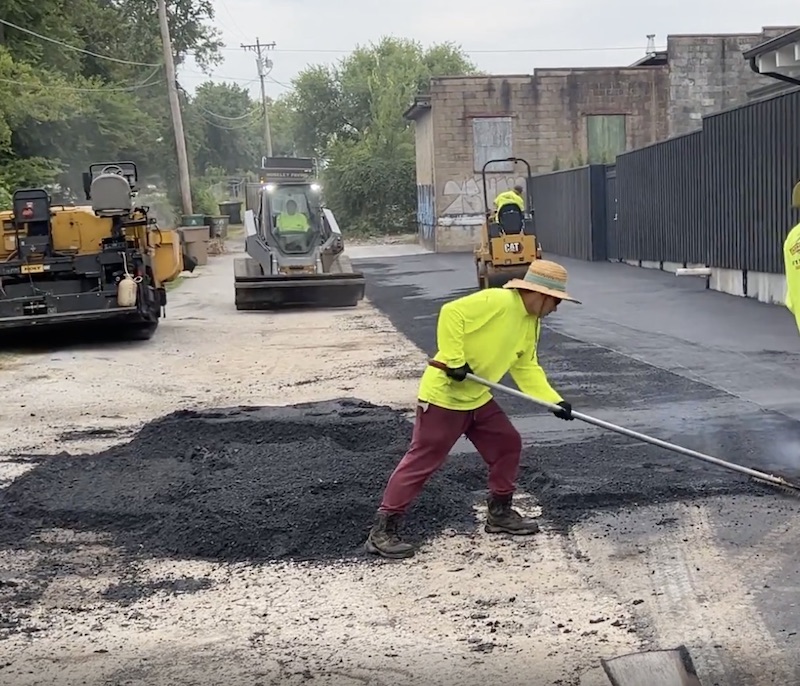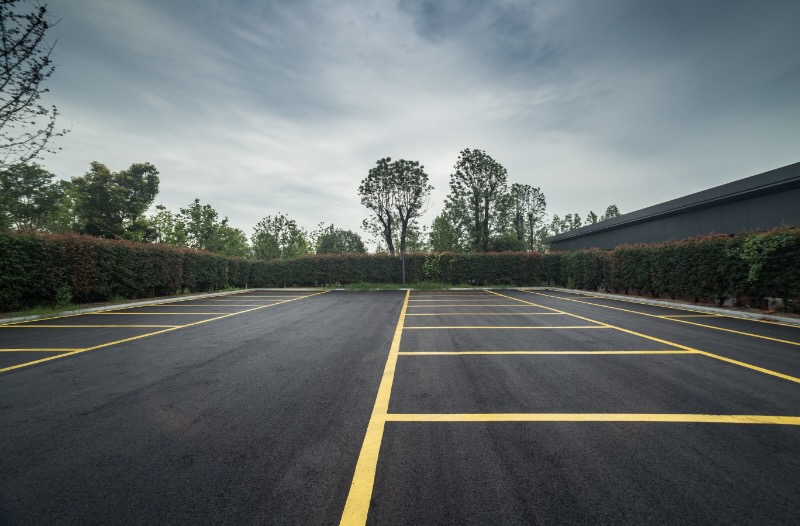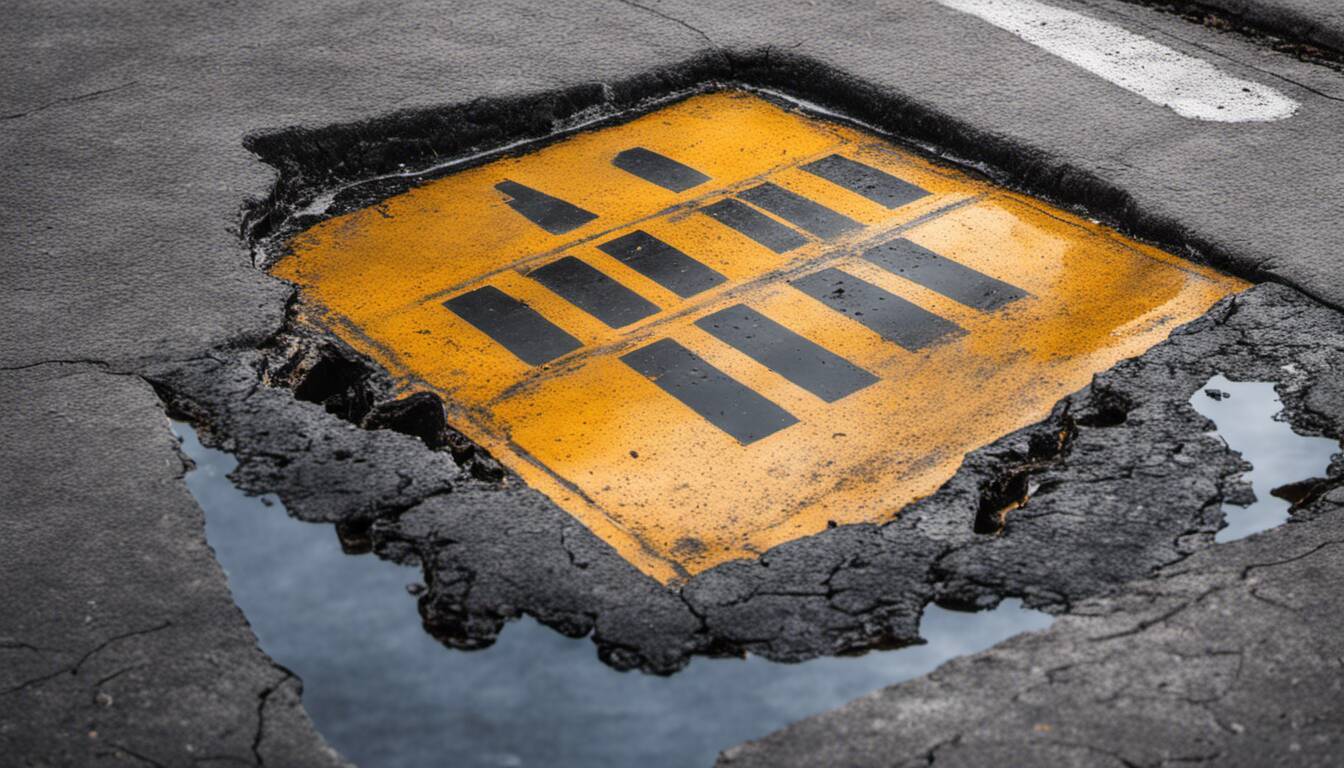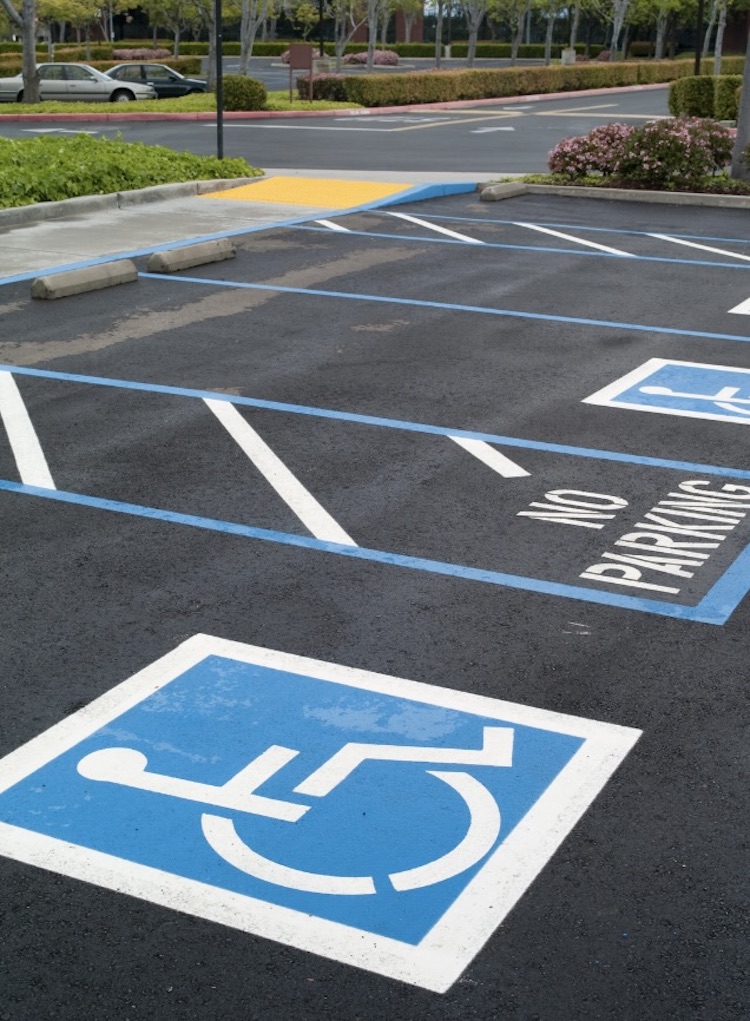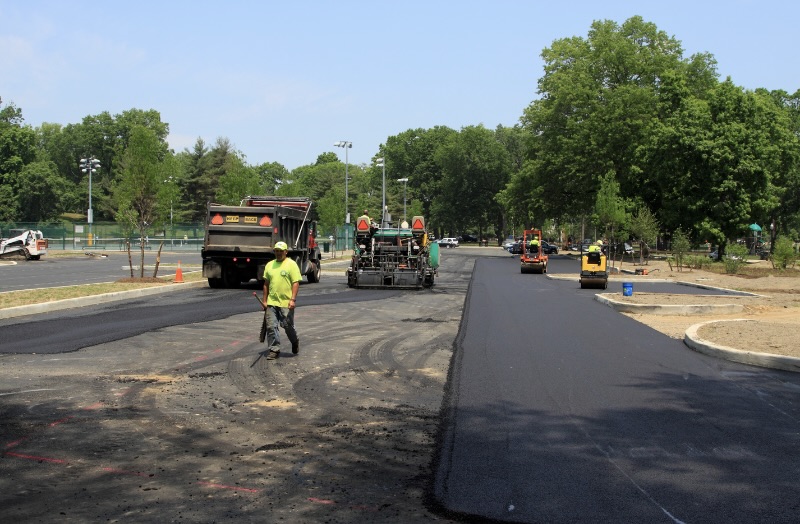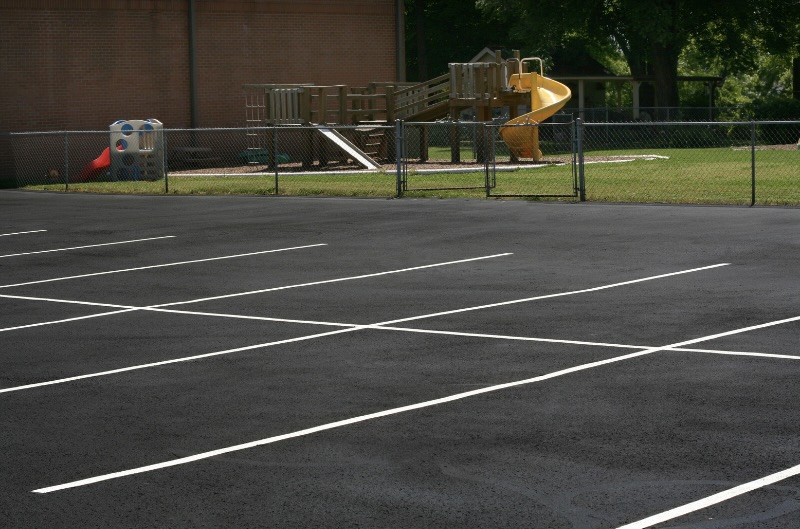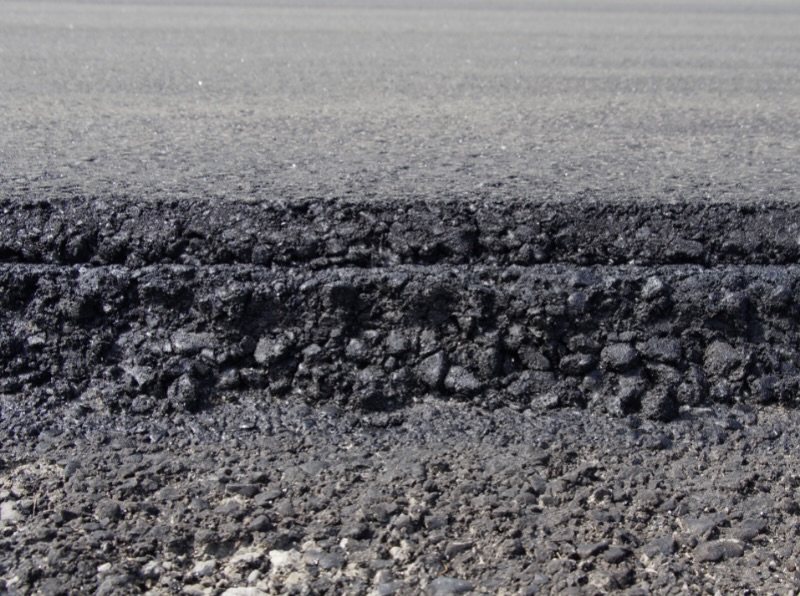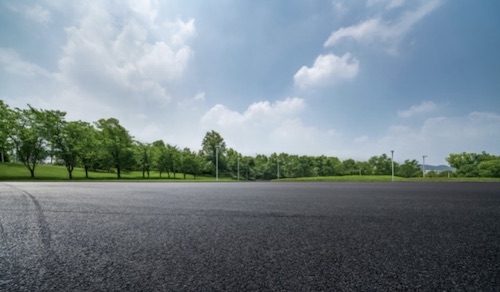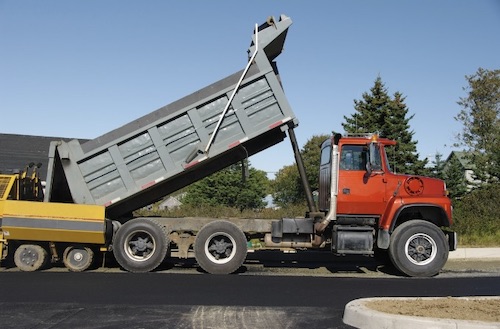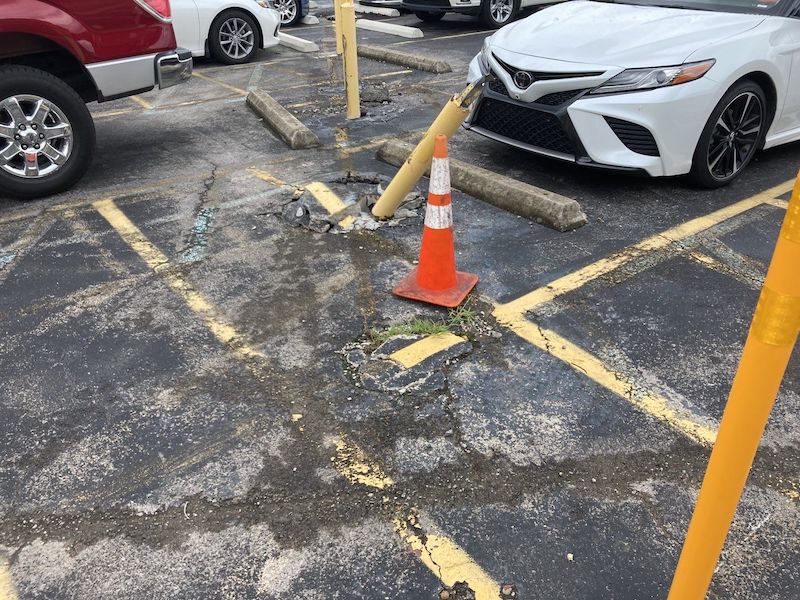Nashville Parking Lot Maintenance: Top Tips for Newly Paved Lots
Nashville Parking Lot Repair: Top Tips for Newly Paved Lots
Paving, specifically asphalt paving, is only the first step toward providing your business with a welcoming and functional asphalt parking lot. Regular inspections, in particular, are crucial as they allow you to spot concerns like pooling water or uneven surfaces before they worsen. A new pavement doesn’t need immediate maintenance, but early inspections can mitigate potential issues in the bud. So, ensure early maintenance, including striping, and keep regular check-ups at the top to ensure a smooth and lasting driving surface. It’s time to work this into your schedule.
Maintaining an asphalt parking lot in Nashville is crucial for its longevity. Regularly scheduled sweeping, sealcoating every 2-3 years, and promptly repairing any cracks or potholes are vital for preserving the surface and ensuring safety for vehicles and pedestrians. Including striping in your maintenance plan can help direct traffic and provide well-defined parking spaces. It’s also essential to address drainage issues promptly to prevent water damage, especially in Nashville asphalt paving, which is susceptible to the local climate.
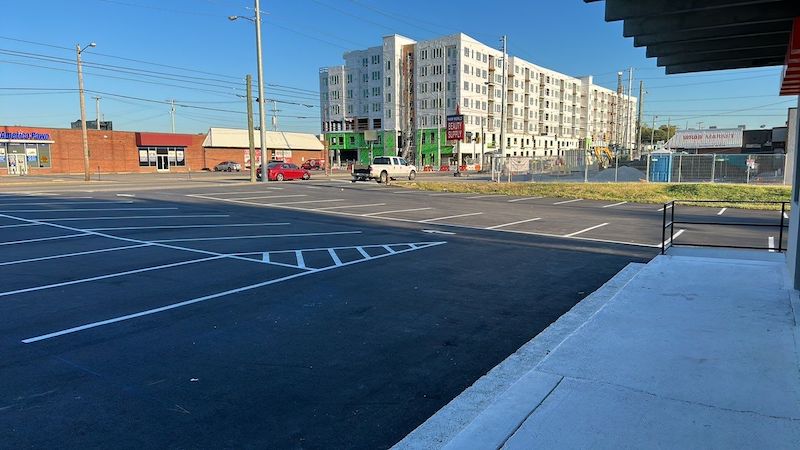
Essential Initial Maintenance After Paving
Congratulations, your asphalt parking lot with proper striping has just been paved! Now, it’s essential to ensure its longevity and durability. The initial maintenance phase is crucial to identifying any potential issues early on and addressing them promptly. Here are some important steps immediately after paving and striping your lot.
Schedule Regular Inspections
Conducting regular inspections right after paving and striping is like giving your asphalt parking lot a thorough health check-up. Identifying issues early can prevent them from escalating into more significant, costly problems later. Look for signs of water pooling, uneven surfaces, or premature wear and tear in the asphalt paving. Promptly addressing these issues will help maintain the structural integrity of your parking lot and save you money on repairs in the long run.
Creating a schedule for regular inspections ensures that you won’t overlook potential issues, allowing you to stay ahead of any problems in your asphalt parking lot. Think of it as taking your car for regular maintenance to keep it running smoothly and prevent major breakdowns. Remember to maintain the striping to ensure clear traffic guidance and defined parking spaces.
Address Drainage Concerns
Proper drainage is vital in ensuring the longevity of your asphalt paving. Accumulated water can weaken the pavement over time, leading to cracks and potholes. Verify that the grading allows water to flow away from the asphalt parking lot surface and that there are no areas where water pools or stands stagnant after rainfall.
Addressing drainage concerns not only preserves the structural integrity of the asphalt paving but also contributes to safety by preventing slippery surfaces. It’s like ensuring that rainwater flows smoothly down a gutter instead of collecting around your house’s foundation—proper drainage is key to maintaining the stability and functionality of your asphalt parking lot.
Our team at Gaddes Strategic, LLC can assist in conducting thorough initial inspections to catch any early signs of trouble and ensure proper drainage for your asphalt parking lot. We also help manage and maintain the striping for easy navigation and parking spaces.
By scheduling regular inspections and addressing drainage concerns immediately after paving and striping, you’re taking proactive steps to maintain your parking lot’s condition and maximize its longevity. These initial maintenance efforts pay off by preventing extensive damage and preserving the quality of your newly paved and striped lot.
Regular Cleaning Procedures and Inspection Techniques
After investing in a newly paved and striped asphalt parking lot, it’s crucial to implement routine cleaning measures to preserve its appearance and structural integrity. Regular sweeping to remove debris keeps the area looking tidy and mitigates the risk of stains and damage over time.By staying on top of regular cleaning, you can also make detecting any potential issues with your asphalt surface easier.
The act of consistent sweeping clears leaves, dirt, and other unwanted materials that can obstruct drainage systems or become lodged in small crevices, leading to potential degradation over time on your asphalt pavement. Noticing these issues early through regular cleaning allows for timely action to address any concerns through asphalt maintenance, thereby preventing minor problems from evolving into more significant and costly issues.
Additionally, implementing a routine inspection schedule is critical for a newly paved asphalt lot. Consistently looking for surface changes such as cracks, potholes, or discoloration is vital. Identifying these changes early on can prevent minor issues from developing into significant problems. An early intervention for a small crack can save you from facing a much larger repair job.
For instance, when water or ice penetrates small cracks in the asphalt surface, they can expand with freezing temperatures and cause further damage. Addressing these minor surface changes promptly is essential for maintaining the structural integrity of the asphalt parking lot.
Considering the importance of regular cleaning and asphalt maintenance services for optimal upkeep, it’s worth contemplating professional assistance. Hiring professionals for routine cleaning and inspection services can provide peace of mind and ensure that any issues are handled effectively. They have the expertise and resources to identify and address potential problems proactively.
Visit our website to learn more about our asphalt maintenance packages in Nashville: NashvilleThermoplasticMarkings.com
By adhering to regular cleaning procedures and inspection techniques for your asphalt pavement, you can prolong the lifespan of your newly paved parking lot and maintain its functionality, ensuring a safe and inviting environment for your visitors and customers.
As we move forward, let’s shift our focus to understanding how to handle the inevitable cracks and stains that occur over time on asphalt lots.
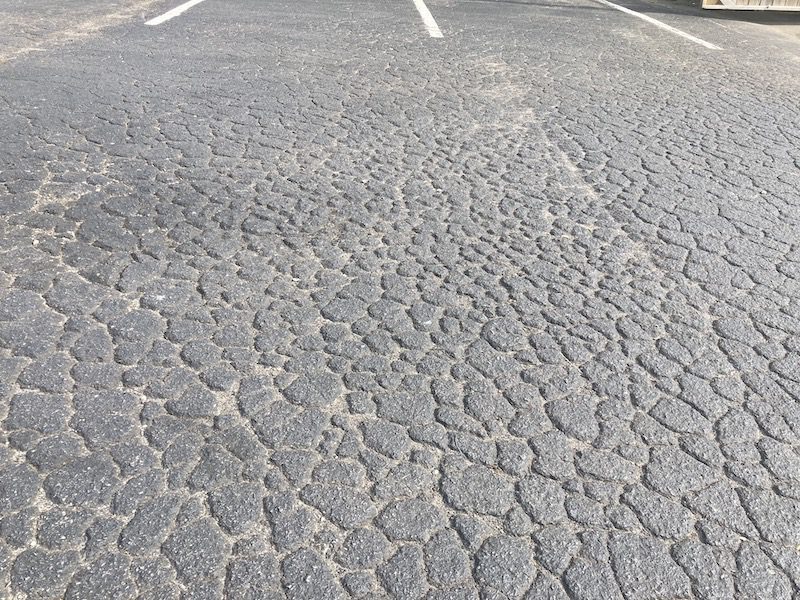
Preventing and Dealing with Cracks and Stains
After investing in a newly paved asphalt parking lot, the last thing you want to see is unsightly cracks and stains threatening its integrity. Addressing these issues promptly is essential for maintaining your asphalt pavement’s structural soundness and aesthetic appeal. Here are some strategies to effectively prevent and deal with cracks and stains:
Fill Cracks Promptly
Address any cracks as soon as they appear on your asphalt surface to prevent moisture from seeping in and causing further damage. Utilize appropriate crack fillers to maintain the structural integrity of the pavement.
Cracks in your asphalt parking lot can lead to serious trouble if not addressed early. Moisture, especially during freeze-thaw cycles, can exacerbate the problem by penetrating deep into the pavement layers, causing expansion and contraction that worsens existing cracks. This can eventually lead to potholes and major structural issues. Proactive asphalt maintenance, including crack filling, is a cost-effective measure to prevent extensive damage.
Stain Removal Techniques
Implement effective stain removal techniques, utilizing appropriate cleaning agents for oil spills, grease stains, and other blemishes to prevent permanent discoloration on your asphalt pavement.
Stains on a newly paved asphalt parking lot can be an eyesore, but if ignored, they can also lead to more serious problems. Treating these stains promptly helps preserve the visual appeal of your parking area and prevents the deterioration of the asphalt surface.
Oil spills, grease stains, and required asphalt repair require specialized cleaning agents tailored for asphalt surfaces. Ignoring these blemishes not only leads to discoloration but also affects the integrity of the pavement over time, leaving an adverse impression on your property.
Suppose you’re facing challenges with crack filling, stain removal, or asphalt repair for your newly paved parking lot. In that case, our team specializes in providing comprehensive maintenance solutions to ensure the longevity and aesthetics of your pavement. These measures can significantly enhance the impression of your property. Visit our website to explore how we can address these concerns effectively.
By proactively addressing cracks, stains, and asphalt repair on your newly paved parking lot, you’re ensuring its longevity and preserving its professional appearance. This enhances the overall experience for visitors and customers and adds value to your property.
Now, armed with practical tips for preventing damage to a freshly paved lot, let’s delve into the importance of sealcoating, asphalt repair, and resurfacing in maintaining the pristine condition of your parking space.
One essential step in maintaining a newly paved parking lot is applying sealcoating. Sealcoating acts as a protective layer that shields the asphalt from damaging UV rays, water infiltration, and oil spills. This preventive measure, along with regular asphalt repair, preserves the integrity of the pavement and positively influences the impression of your property. It extends the lifespan of your asphalt by mitigating the negative impact of these elements, ensuring your pavement retains its functionality and aesthetics for a longer period.
The Need for Sealcoating and Resurfacing
Furthermore, recognizing the signs that indicate the need for parking lot resurfacing—or possibly asphalt repair—is equally crucial. Extensive cracking, potholes, and uneven surfaces can give a poor impression of your property and are clear indicators that your parking lot requires resurfacing to prevent further deterioration. Neglecting these warning signs can lead to escalated damage, hefty repair costs, and increased safety risks for both vehicles and pedestrians.
It’s important to stay proactive in preserving your parking lot investment. Regular sealcoating, timely resurfacing, and diligent asphalt repair are critical strategies for maximizing the longevity of your pavement and enhancing your property’s impression. By addressing potential issues before they escalate, you save money on extensive repairs and ensure your parking lot’s safety and functionality.
Our sealcoating, resurfacing, and asphalt repair services are designed to safeguard your parking lot investment and your property’s image. Feel free to explore our website to learn more about our comprehensive maintenance solutions.
Let’s focus on estimating maintenance costs for a new paved lot, including asphalt repair, to ensure you have all the necessary information to make informed decisions about your parking lot investment and your property’s impression.
So, your parking lot has undergone a remarkable transformation—it’s been freshly paved, pristine, and ready to welcome an array of vehicles and visitors. But now you’re probably wondering about the upkeep costs, including asphalt repair, to ensure the long-term quality and functionality of your investment and the lasting good impression of your property. Let’s break down some crucial aspects of estimating maintenance costs for maintaining the durability and functionality of a newly paved parking lot in Nashville.
Estimating Maintenance Costs for a New Paved Lot
First things first, routine upkeep is key after a parking lot has been newly paved. This includes essential maintenance tasks like regular cleaning, crack filling, sealcoating, timely asphalt repair, and possibly even resurfacing over time to protect your lot from deterioration. Each of these maintenance elements plays a pivotal role in safeguarding your parking lot against wear and tear, ultimately extending its lifespan, maintaining its functionality, and enhancing the impression of your property.
Sealcoating, in particular, serves as an effective sealcoat against harsh weather conditions, UV rays, oil spills, and other damaging elements, in addition to being a barrier to the daily traffic of cars. It aids in preventing moisture penetration, minimizes oxidation, and enhances the overall appearance of your parking lot. By routinely applying such a sealcoat, you’ll significantly reduce the likelihood of costly repairs down the line by protecting the surface from cracking and other forms of deterioration.
When evaluating professional asphalt maintenance services, it’s paramount to consider both initial costs and long-term benefits. Engaging professional services ensures that the maintenance work is performed proficiently according to industry standards and that it can handle the impact of constant traffic from cars. This delivers substantial long-term advantages by minimizing the need for extensive repairs in the future.
Additionally, while some maintenance tasks can be undertaken in-house, professional maintenance services offer comprehensive expertise and efficient execution. They bring valuable insights into addressing early signs of deterioration due to the consistent traffic of cars and ensuring that proactive sealcoat measures are embraced.
Upkeep expenses are integral to safeguarding your great investment in a newly paved parking lot. Carefully factoring in routine maintenance costs will not only help preserve the durability of your parking lot against traffic use but also strengthen its overall functionality. And remember, if you need help estimating detailed maintenance costs explicitly tailored to your double-duty, car-heavy, newly repaved parking lot in Nashville, feel free to contact us for expert assistance!
Knowledge truly is power in this fast-paced world of pavement preservation and ongoing maintenance strategies. Now, let’s explore how to find reliable sealcoat experts skilled at tending to parking lots with the finesse needed to manage Nashville’s traffic and cars here in Nashville.
Paved lots inevitably show wear and tear due to regular use and exposure to various weather conditions as well as traffic from cars.
Finding local experts familiar with Nashville’s climate, terrain, and traffic patterns can significantly impact the maintenance and longevity of your parking lot. It’s not just about choosing experienced professionals; it’s crucial to ensure they understand the specific challenges presented by Nashville’s climate and traffic.
Locating Experts for Parking Lot Maintenance in Nashville
Nashville’s climate experiences hot, humid summers and cold winters, impacting the pavement with expansion and contraction, which may lead to cracks and potholes. Therefore, a maintenance provider experienced in addressing these specific issues and managing the added stress of car traffic can provide targeted solutions to preserve the quality of your parking lot.
Seeking out maintenance providers means verifying their credentials and reputation. It’s vital to ensure that any chosen provider is licensed and insured, guaranteeing they have met state requirements and protecting against potential liabilities during maintenance work on properties, especially those that accommodate high-traffic cars.
Verifying Credentials and Reputation
In addition to verifying credentials, researching the reputation of potential providers is essential. Look for reviews and testimonials from previous clients, particularly those with car-heavy lots, offering valuable insights into their services’ quality and proficiency with sealcoat application.
Customers’ feedback plays an essential role in determining the reliability and professionalism of the maintenance provider. By tapping into word-of-mouth recommendations and online reviews, you gain valuable perspectives on how each company is perceived by those who have utilized their services, especially in handling lots with high car traffic.
Customers’ feedback plays an essential role in determining the reliability and professionalism of the maintenance provider. By tapping into word-of-mouth recommendations and online reviews, you gain valuable perspectives on how each company is perceived by those who have utilized their services.
Promote: Check out Nashville Thermoplastic Markings for expert parking lot maintenance services in Nashville. Contact them to discuss your maintenance needs.
Choosing an experienced maintenance provider ensures the preservation of your investment and peace of mind, knowing that qualified professionals are taking care of your parking lot.
Experienced professionals aware of local conditions are critical for maintaining a parking lot’s longevity. The right provider will ensure timely, effective maintenance, preserving the quality and safety of your lot in the long run.

